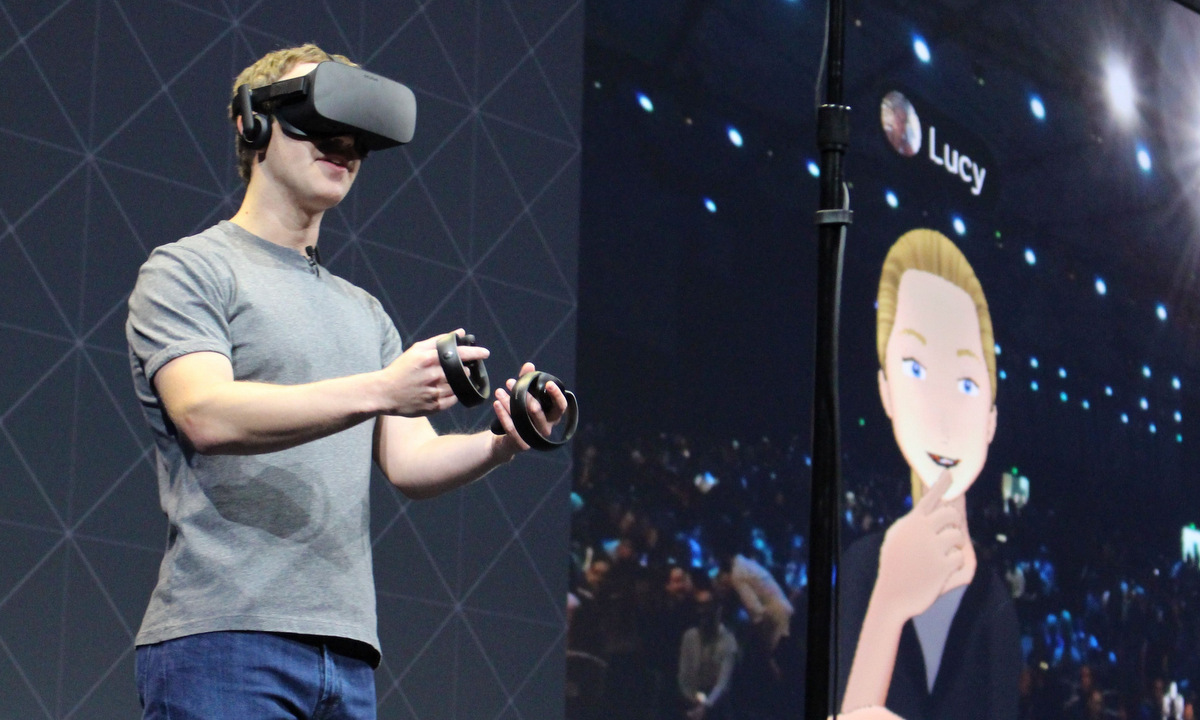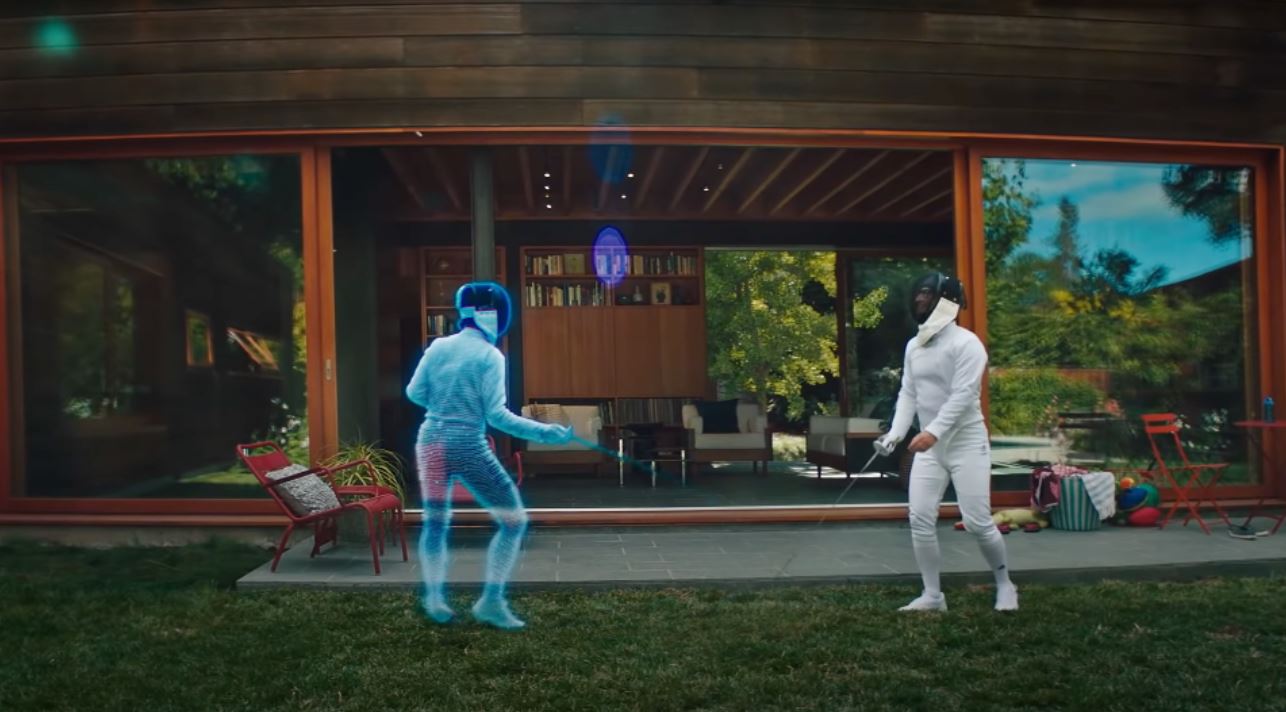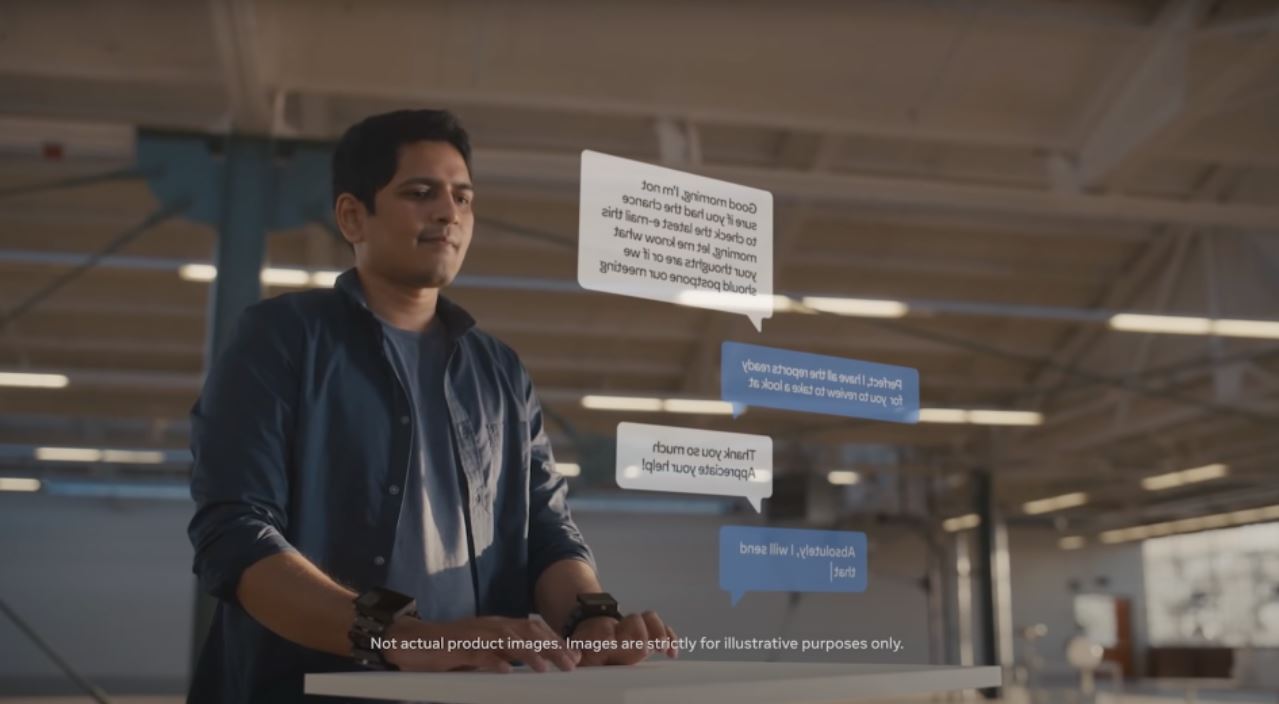Metaverse is currently Mark Zuckerberg and Meta’s top priority. That’s why the company is ramping up production of augmented reality (AR) hardware devices, with two products codenamed “Project Nazere” and “Hypernova”.
“Project Nazere” is a pair of high-end AR glasses that can work without a smartphone. The first version of this model is expected to launch in 2024, with upgrades also coming in 2026 and 2028 respectively. According to The Verge, the “Nazere” will use a custom waveguide. combined with a microLED display to fuse real-world images with a digital image layer.
Meanwhile, “Hypernova” is a mid-range product line, based on connectivity and computing power on smartphones, and will also be released in 2024. Both “Nazere” and “Hypernova” will be compatible. compatible with a type of wearable device that uses differential electromyography to recognize electrical nerve cells, allowing the generation of inputs similar to mind control.

Mark Zuckerberg and Meta are “doing everything” for the metaverse, with modern AR glasses expected to be released from 2024.
These glasses are all important strategic products in Meta’s ultimate goal, and are also “expands” for Mark Zuckerberg’s aspirations, hopes and dreams. The Verge editor Alex Heath commented:If AR glasses and other futuristic hardware made by Meta could come to life, they would take the whole company, along with Zuckerberg’s ambitions, to new horizons. A former employee of the Meta project once shared with me: “Zuck’s ego is attached to the AR glasses. He wants them to have an “iPhone moment”“.
Everyone will have their own interpretation of the phrase “iPhone moment”, but in general, it relates to a product that has had a great impact on the market and the times. It is not necessarily the first product in a specific field, but it is a super product that elevates the whole field to be more accessible, closer to the masses. iPhone is the phone line that has done this for more than a decade.
For a technology CEO like Zuckerberg, creating an “iPhone moment” involves not only high sales and huge profits, but also the ability to provide full control over a vast ecosystem. That allows a company to draw its own picture and walk on its own destiny – something they could never do if they built a product on someone else’s foundation. For a long time, Zuckerberg has always been annoyed that the top products of Facebook/Meta always work in environments operated by other companies, like Apple or Google.

Zuckerberg wants the Metaverse of Meta to do what Apple has done with the iPhone.
Back in 2015, at the end of an era when Facebook was still a phenomenon rather than a nasty giant in the tech world, Mark Zuckerberg said:One of my biggest regrets is that Facebook hasn’t had the opportunity to form its own mobile operating system ecosystem.“.
The smartphone revolution took years before Facebook was big enough to build its own platform. And so, this social network, although popular with many people, still has to work on the most popular smartphones – iPhone and Android phone. Attempts to regain some control over the experience and interface, typically Facebook Home on Android, have suffered the same fate.
Mark Zuckerberg has reason to be upset about this issue. The most obvious example is Apple’s App Tracking Transparency (ATT) feature, which allows users to decide whether an app can track their behavior. This is like a slap in the face to Meta’s advertising business. In February, a representative of Meta said that ATT will cause their company to lose up to $ 10 billion in revenue in 2022, and with it, it will most likely be a historic slide in the share price.

Metaverse is an opportunity for Facebook to create its own platform, without depending on Apple, Google or other technology companies.
By 2024, by the time Meta’s AR headsets come out, their biggest competition will probably still be from Apple. So is this another reason why Zuckerberg is determined to create an “iPhone moment” for his virtual reality products?
The problem is that at the moment, no one can say for sure whether Meta, Apple or any other company, can create an AR hardware product with the stature and impact of the iPhone. can do. In the past 15 years since the first iPhone was released, even Apple’s most cutting-edge inventions, such as the iPad or Apple Watch, have not been able to have a strong impact on the company, with the whole industry or the whole society like the iPhone. Looking a little further, the technology village also didn’t have many “iPhone moments” like that, aside from the IBM computer in 1981, the Windows 95 operating system in 1995, and the first iPod model in 2001.
Mark Zuckerberg is doing everything to realize his dream of shaping his own platform for his products. Not coincidentally, Meta/Facebook spent up to 2 billion USD to acquire Oculus – a pioneer in the field of virtual reality (VR), and then became the dominant name in this market in the past few years. . According to data from IDC, Meta’s Quest 2 headset accounts for 78% of the VR market share in 2021, with sales of 8.7 million units. Besides, Quest users have spent a total of 1 billion USD to experience games and other content on this device line.

Mark Zuckerberg is doing everything he can to make his dream come true, and the metaverse is an important step towards making it happen.
However, even VR has not been able to find its own “iPhone moment”, because for many people, virtual reality is still something that “it’s okay to have, it’s okay not to have”. That’s probably part of the reason why in the last few years, Meta and Facebook have decided to go all out for the metaverse, an idea that is essentially a combination of AR and VR.
One more thing about “iPhone moments”: It’s that it won’t come immediately, but will be the ultimate test of the “inflexibility” of technology companies. Even the iPhone does. Sales of Apple’s first smartphone model were not really impressive. And it was not until 18 months after the launch date that they launched the App Store – one of the most important functions of the iPhone until now. Beyond that, we have the iPod – a product line that didn’t reach its full potential until it became compatible with Windows in 2002 and allowed users to download music in 2003.
Since Meta has planned to develop AR at least until 2028, and also claims to spend about 10-15 years perfecting the metaverse, they fully understand that they are on a long journey with Many important milestones need to be conquered. That means it could very well be years before we know if Zuckerberg is content to shape himself into the next big tech breakthrough. With this field, nothing is certain, even if you are willing to invest tens of billions of dollars with a belief, an infinite patience for a product.
According to FastCompany
